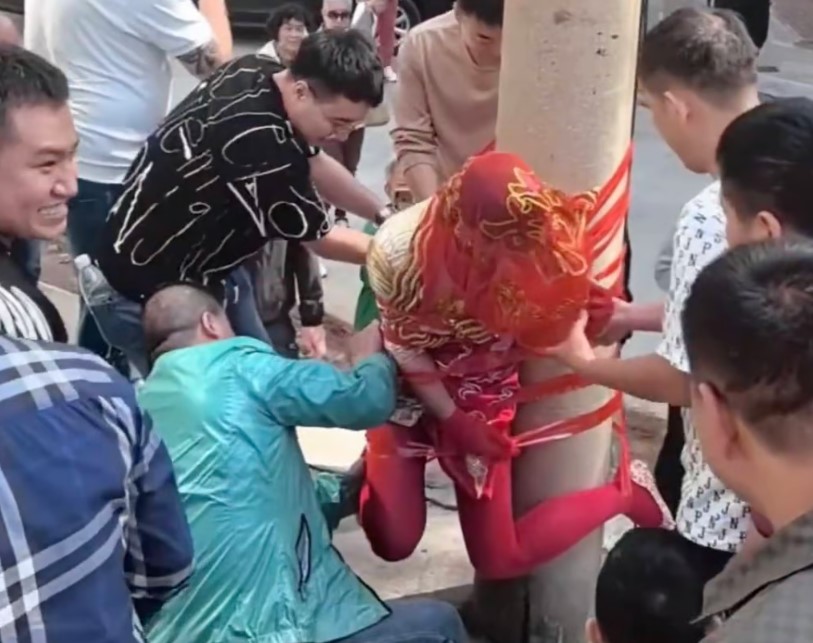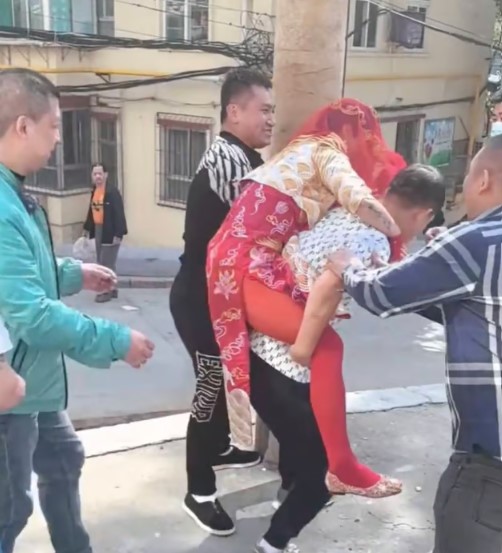A shocking video recently went viral on Chinese social media, sparking a heated debate about the line between playful pranks and inappropriate, harassing behavior at traditional wedding ceremonies in the country.
According to SCMP, the video was filmed at a wedding in Shanxi province (China) on September 23, recording the scene of a bride wearing traditional wedding clothes being tied to an electric pole with tape by a group of men - believed to be the groom's friends.
Although the bride cried for help and tried to escape, no one was there to intervene to stop the situation.

A friend of the groom, surnamed Duong, explained to the press that this was a "game" agreed upon by the couple in advance.
"It's our local custom to make a little noise at weddings, it's all between good friends. There's no harm in it," said Mr. Duong.
However, the incident has caused a wave of outrage on Chinese social media, with many criticizing the action as "horrible" and "backward".
"Hun nao" is a centuries-old custom that aims to create a joyful atmosphere, help the bride and groom reduce anxiety on their big day and ward off evil spirits during the wedding ceremony. However, today, this custom is often transformed into vulgar and even dangerous jokes.
Also according to SCMP, a wedding organizer in Wuhan (China) revealed that there were cases where guests tied bananas or cucumbers to the groom and asked the bride to bite them, or asked the groom to take off his clothes to take pictures with the bride. Such harassing acts are not uncommon at weddings in many provinces in China.

Notably, in 2016, three men in southwestern China were forced to pay more than 100,000 yuan (about 351 million VND) in compensation after tying up a groom, leaving him injured and permanently disabled in an over-the-top "kissing" game.
In the face of public backlash, local authorities quickly took action.
On September 24, local authorities said that Mr. Duong and those involved had apologized for their actions. They also pledged to step up efforts to promote civilized wedding customs and encourage people to abandon backward practices.








